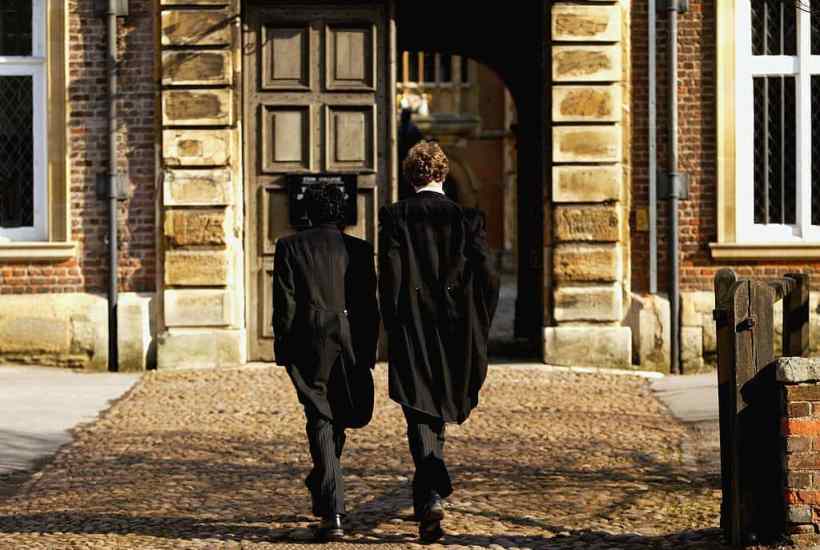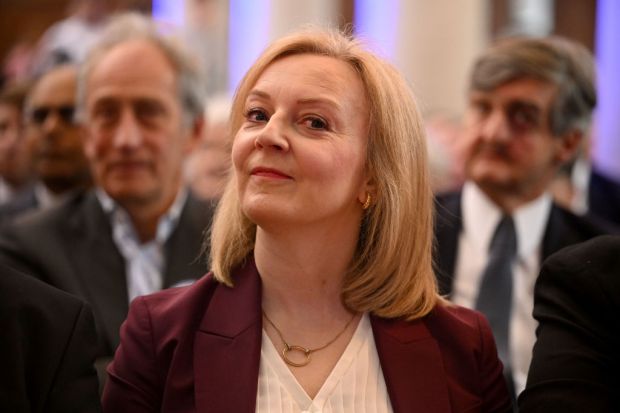Bashing fee-paying schools is a popular sport – and Russia’s invasion of Ukraine is as good an excuse as any to engage in it. Labour MP Ian Mearns has called for schools to lose their charitable status if they take fees from oligarchs linked to the Putin regime. Meanwhile, Tory MP Nickie Aiken has said oligarch kids should be sent back to Russia. Yet these claims risk painting a misleading picture of Russian children at British schools. The reality is that many Russian children educated at our top private schools have nothing to do with Putin, so it’s wrong to punish them for his war.
There are around 2,300 Russian children at Britain’s fee paying schools, according to the Independent Schools Council’s 2021 census. But if my experience is anything to go by, taking that figure and extrapolating that these schools are rammed full of the offspring of oligarchs is nonsense.
I have two boys, aged nine and 13. The younger one attends a co-educational London prep school situated near Sloane Square on the Chelsea/Knightsbridge borders; in other words, it is located in the very heart of oligarchland. The older one started this year at a well known north London boys’ school. Both schools have plenty of Russian pupils – and at the prep school the former Soviet Union is also represented by Belorussian, Kazakh, Uzbek, Armenian, Azerbaijani, and Tatar parents. Very few, if any, of them would fall into the oligarch stereotype.
Most of the Russian parents I have come across are professionals working for British companies; some are certainly very well off by most people’s (and indeed my) standards, but that doesn’t make them oligarchs.
Speaking to these Russians they mostly find themselves in London for the same reason that French, Italian and Spanish bankers are here; it is because London – much as we like to deny it – is a more meritocratic environment than where they come from.
Ask an Italian working in finance why they are in London and the answer you are most likely to get is that someone from their background – the father of the specific person I am thinking of used to reload cigarette vending machines in Bari, his son is a principal at one of the world’s largest hedge funds – could never have succeeded back home. Whatever we may tell ourselves about Britain’s allegedly rigid class system, in London, connections – especially for foreigners, as the social signifiers which can be applied to British candidates don’t work – matter nowhere near as much.
Most of these Russian parents are in London exactly because they did not need connections here to succeed; they have left Russia precisely because Britain, at least for them, is a meritocracy. They are the exact opposite of oligarchs. What worries Russian parents I have spoken to about sanctions is not that their funds will be frozen but that they will no longer be able to send back a few hundred pounds each month to supplement their parents’ modest pensions.
Undeniably some of the 2,300 Russians at British schools – a very small minority, I would wager – will be the children of oligarchs. But again the conventional narrative is wrong; British public schools are not profiting much from taking these pupils. Independent schools charge high fees – £21,000 upwards for a London secondary day school; £45,000 for Eton and its select competitors. But that is it; if you are not in receipt of a bursary, you pay that fee regardless of who you are. Public schools are not a product like Patek Philippe watches, Hermes handbags or interior design services: there is no oligarch splurge rate; you can’t opt for Winchester with added butler service. Everyone on a full fees place pays the same.
Any parent who has partaken in the exasperating game of trying to get their child into a fee paying London secondary school or leading boarding school will be aware that it is a sellers’ market. These schools are highly selective; if Russians were excluded, they could fill these places many times over.
The schools which are more reliant on Russian and Chinese parents are third tier boarding schools which have more places than there is domestic demand for. Strangely these schools never appear in newspaper write ups of wicked Russians buying their children a British education.
In addition to fees, many schools with charitable status are in the fundraising business. But what are these donations sought for? These day schools try to raise money to expand their bursary programmes. And the recipients of bursaries are overwhelmingly British. If some Russian oligarch helps more poor British children to get a first rate education this is surely a good thing.
Other charitable appeals tend to be for buildings or new facilities. Building some new squash courts for the use of a group of public school boys – even here there will almost invariably be some community use, not least to satisfy the Charity Commission’s public benefit test – may not be up there as a charitable endeavour with feeding starving children, helping Ukrainian refugees or saving a Rembrandt for the nation. But it is nevertheless surely a more socially useful expenditure of an oligarch’s dosh than buying the umpteenth Birkin handbag.
Oligarchs’ money and its Londongrad expression may well have had a malignant if not corrupting influence on the UK, but I can’t see how public schools are part of the problem.
Got something to add? Join the discussion and comment below.
Get 10 issues for just $10
Subscribe to The Spectator Australia today for the next 10 magazine issues, plus full online access, for just $10.



















Comments
Don't miss out
Join the conversation with other Spectator Australia readers. Subscribe to leave a comment.
SUBSCRIBEAlready a subscriber? Log in